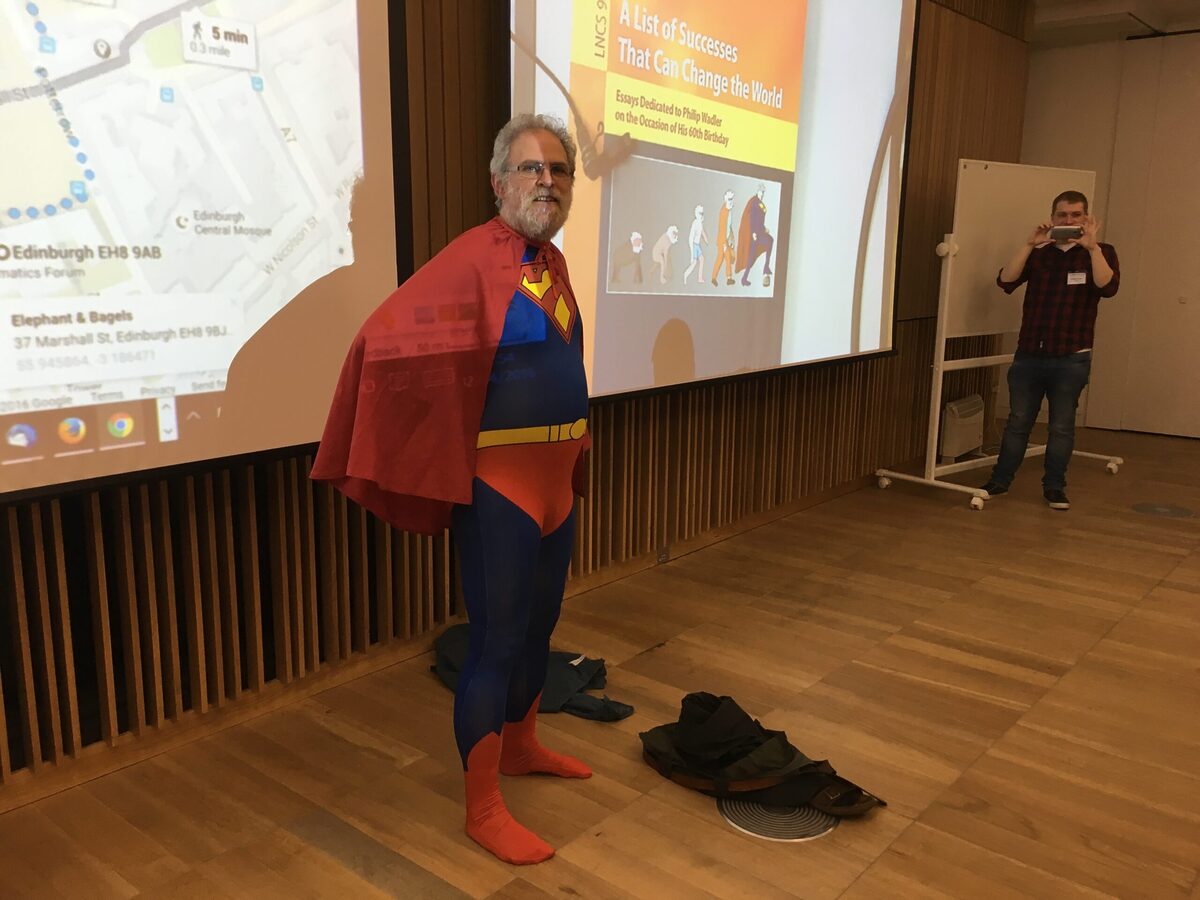Cardano Lead Researcher Joins the Likes of Einstein and Darwin
Published: May 19, 2023 │ 1:55 PM GMT The Royal Society inducted Cardano’s Lead Researcher, Phillip Wadler. The esteemed society celebrated Phillip Wadler for his scientific...

Published: May 19, 2023 │ 1:55 PM GMT

- The Royal Society inducted Cardano’s Lead Researcher, Phillip Wadler.
- The esteemed society celebrated Phillip Wadler for his scientific contributions.
- The induction further enhances the global reputation of Cardano’s research team.
Since its inception, Cardano has been driven by a commitment to academic rigor and scientific principles, standing out as one of the leading research-driven blockchains in the world. Led by a team of expert researchers, Cardano’s approach to conducting research is heralded, earning their researchers a place among iconic innovators and intellectuals like Charles Darwin and Albert Einstein.
Now, in a historic moment for the blockchain field, Cardano proudly celebrates the election of its lead scientist, Professor Phillip Wadler, into the prestigious Royal Society, for his invaluable contributions to changing the world with science.
A Major Contributor to Science
Cardano’s Lead Researcher and creator of its programming language Plutus, Professor Philip Wadler, has been elected as an esteemed Fellow of the Royal Society. Wadler joins the likes of notable modern-day computer scientists like Jane Hilston, Alan Bundy, and his colleague Professor Aggelos Kiayias.
After its Chief Scientist, Professor Aggelos Kiayias, Wadler’s election to the Royal Society makes him the second lead researcher of Cardano and IOHK to be a fellow of the organization.
The Royal Society has yet to consider computer scientists like Polkadot’s Gavin Wood, Cardano’s Charles Hoskinson, Bitcoin’s Satoshi Nakamoto, Litecoin’s Charlie Lee, Ripple’s Jed McCaleb, and EOS’ Dan Larimer despite their substantial contributions to the computing and blockchain technology space.

The Royal Society credit Professor Wadler for his work in advanced theory and practice of programming languages, which included Plutus, Java, C-hash (C#), and Rust, among others. Interestingly, the blockchain realm uses most of these languages.
The Royal Society grants fellowships to individuals who have made ground-breaking contributions to improving natural knowledge, including mathematics and engineering science. It elects 52 fellows from worldwide every year. The selection committee considers candidates based on their respective contributions to science.
Charles Hoskinson Congratulates Professor Wadler
Cardano’s founder Charles Hoskinson celebrated the achievement in a broadcast as remarkable and unexpected. Hoskinson was ecstatic about Wadler’s election to the Royal Society and called him a “legend.”
On The Flipside
- There are currently over 5,700 smart contracts on Cardano using Professor Wadler’s smart contract language Plutus.
Why This Matters
This achievement is remarkable for Cardano and legitimizes its position as a research-driven blockchain and pioneer of the space. Unlike most chains, Cardano doubled down on integrating academic principles into its development process. The Proof-of-Stake network’s efforts are now bearing fruits as its lead scientists and researchers gain global recognition for their contributions.
Read why Cardano’s new Layer-2 solution is important for its scalability:
Why Is Hydra Important for Cardano’s Scalability?
Cardano is in a tight race with Bitcoin for the top DeFi TVL Ranking:
Cardano Struggles to Outpace Bitcoin in DeFi TVL Despite Releasing Hydra
This article is for information purposes only and should not be considered trading or investment advice. Nothing herein shall be construed as financial, legal, or tax advice. Trading forex, cryptocurrencies, and CFDs pose a considerable risk of loss.
Delegate Your Voting Power to FEED DRep in Cardano Governance.
DRep ID: drep12ukt4ctzmtf6l5rj76cddgf3dvuy0lfz7uky08jfvgr9ugaapz4 | We are driven to register as a DRep by our deep dedication to the Cardano ecosystem and our aspiration to take an active role in its development, ensuring that its progress stays true to the principles of decentralization, security, and community empowerment.DELEGATE VOTING POWER!









